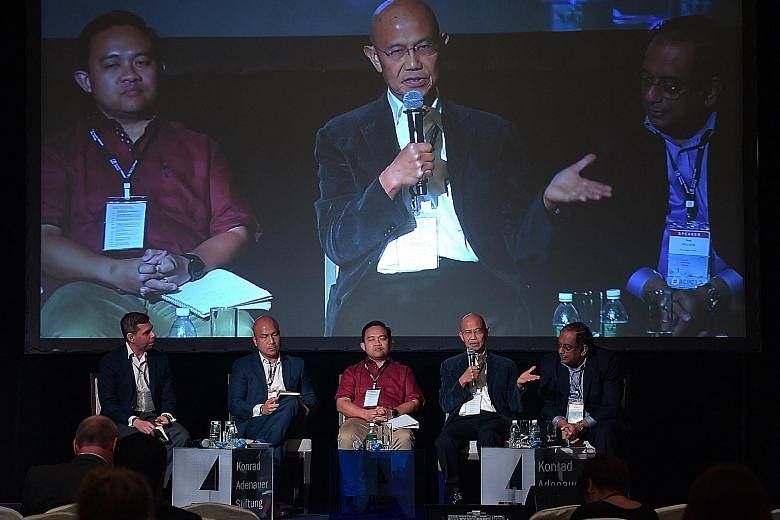The rise of social media is often described as a phenomenon detrimental to the mainstream media, but Thai media company chairman Suthichai Yoon saw it as an opportunity.
After discovering Twitter 10 years ago, the 71-year-old who heads Nation Multimedia Group, led the charge in getting reporters from his media group to write blog posts and interact with readers online, among other things.
Tapping on social media avenues like these has helped Mr Suthichai and his media group reach out to people from all walks of life, including the young - who may not typically be fans of traditional media outlets. His Twitter account now has over 2.4 million followers, and he also uses Facebook Live to give his views and speak to experts about current affairs.
Mr Suthichai was speaking yesterday at the Asian Conference for Political Communication organised by German think-tank Konrad Adenauer Stiftung. He was part of a panel hosted by The Straits Times titled, "Can mainstream media take on the challenge posed by social media in elections?".
The five panellists, who included editor-in-chief of Singapore Press Holdings' English/Malay/Tamil Media and ST editor Warren Fernandez, ST associate editor Ravi Velloor and S. Rajaratnam School of International Studies dean Joseph Liow, discussed the importance of keeping up with technology and the challenges of funding professional journalism amid the rise of social media.
At ST, the print newsroom was revamped to produce multimedia content, from live-blogging to conducting online video forums.
It was about ramping up political coverage and making it "available to readers anywhere, any time, any way they wanted it", said Mr Fernandez, noting the growing dominance of social media sites in the 2011 General Election.These efforts paid off when the 2015 polls rolled around, and traffic on the ST website nearly doubled in the campaign period, he added.
Mr Fernandez, who moderated the panel, also spoke about the cost of good journalism, saying that news organisations need resources to do their jobs well. "For democracies to survive and to work, it's absolutely critical that you have a good source of reliable information... fair, impartial, objective," he said.
The panellists also discussed the reputation of the mainstream media in their respective countries.
Mr Wan Saiful Wan Jan, chief executive of Malaysia's Institute for Democracy and Economic Affairs, noted that Malaysians typically dismiss traditional media outlets as propagandists. He attributed this to what he described as the Malaysian government's heavy media regulations, which he said have eroded trust in the mainstream media.
But the opposite was true in Thailand, said Mr Suthichai, and Thais have turned to traditional media to verify partisan views and stories making the rounds on social media .
"Social media has empowered the existing traditional media in a big way. People come to us to get verification," he said.


